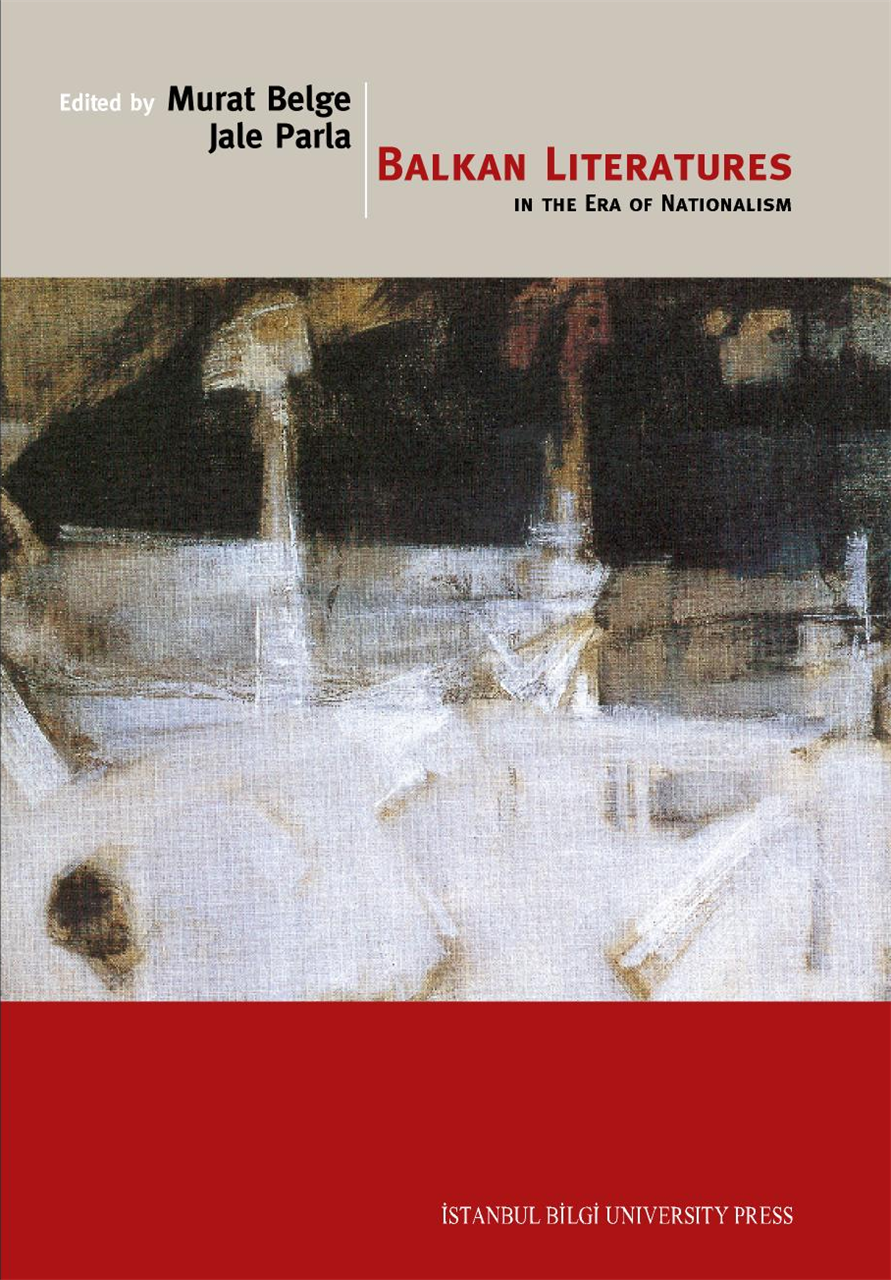
Balkan Literatures In the Era of Nationalism
Literature became one of the cultural areas which contributed to the discursive construction of nationhood in the new nation-states that were formed in eastern Europe and the Near East upon the decline and fall of the Ottoman Empire. This book takes up the literary genres, themes, and motifs that are commonly found in literature’s engagement with national issues, such as the relationship between essentialist thinking and national myths, adoption of national languages, foundational narratives, national romances, forged epic cycles, formation of national canons, ideological historiography, and nationalist reconceptions of geography.
Preface Murat Belge, Jale Parla
Essentialism
1 Disintegrating Narratives and Nostalgia in Post-Yugoslav Postmodern Fiction
Tatjana Aleksi ´c
2 Essentialism
Murat Belge
3 The Image of the Turk in Hungarian Historical Novels
Peter Hajdu
4 Hoax Literature and Phony History
Evelina Kelbecheva
5 The Enemy Within: Aka Gündüz’s The Star of Dikmen As an Example of Turkish National Romances
Erol Köroğlu
6 Epic Masculinity Among the Serbs: Mourning the Nation in the Post-Oriental Condition
Tomislav Longinovi ´c
7 The Image of the Ottoman Empire in Macedonian Literature
Ana Martinoska
8 The New Balkan “Other”
Andrew Wachtel
Canons and Canon Formation
9 The Formation of the Modern Literary Canon and Its Relation to Institutions
Venetia Apostolidou
10 A Canon Without Messianic Myth: Narrating How Bulgaria Fell Under Ottoman Rule
Dessislava Lilova
11 From an Empty Pumpkin to a Leaf in the Wreath of Immortality: The Canonization of Grigor Pˇarliˇcev
Raymond Detrez
12 The Turkish Thesaurus and the Emergence of Style: The Bulgarian Case
Albena Hranova
13 Linguistic Canon and Literary Canon: Mimicries and Alibis
Albena Hranova
14 Anthologies as an Export Canon
Bilyana Kourtasheva
15 Literary Canons and Promising Challenges: Greek and Turkish Novels
Hercules Millas
16 Is There a Place for Women’s Writing in the Serbian Literary Canon?
Ivana ˘Zivan˘cevi ´c-Sekeru˘s
17 Facing the Canonical Challenge: The Making of Romanian Literary History
Monica Spiridon
18 “We Ought to Know Who We Are”: Post-Ottoman Identities: The Feud of (Hi)Story Telling
Monica Spiridon
19 Bulgarian Literary Textbooks and the Image of Self, Others, and Modernity
Roumiana L. Stantcheva
Discourses and Traditions
20 “It Was the Best of Times, It Was the Worst of Times”: Limits of Greek and Turkish Co-Existence in Dido
Soteriou’s Farewell Anatolia and Stratis Doukas’ A Prisoner of War’s Story
Vangelis Calotychos
21 Tradition via Appropriation: Sinjka Alka and the Tradition of Resistance with the
Symbols of the “Enemy”
Ozan Erözden
22 Notes Toward a Canon of the Statue in Turkey
Matthew Gumpert
23 Constantinople-Istanbul-Tzargrad in Russian Cultural Imaginary and the Imperial-Colonial
Differential in Modernity
Madina Tlostanova
Historiography and Geography
24 Reforms and Rhetoric: Bulgarian Images of the Tanzimat Reforms
Alexander Kiossev
25 Bad Blood, Beauty, and Violence
Dagmar Roberts
26 The Picturesque Image of the Turk in Romanian Culture
Romanita Constantinescu
27 From Allegory to Parable: Inscriptions of Anatolia in the Turkish Novel
Jale Parla
Index
Jale Parla
She is Professor of English and Comparative Literature at the Department of Comparative Literature at Istanbul Bilgi University. Her publications include Efendilik, Kölelik, Şarkiyatçılık (The Master, The Slave, The Orientalist, 1980); Babalar ve Oğullar: Türk Romanının Epistemolojik Temelleri (Fathers and Sons: The Epistemological Foundations of the Turkish Novel, 1990), Don Kiflot’tan Bugüne Roman (The Novel from Don Quijote until Today, 2000) and an edited volume with Sibel Irzık, Kadınlar Dile Düşünce (When Women Fall into Language, 2005). She has published various articles in Turkish and in English on the Turkish novel and on the questions of world and comparative literature.
Murat Belge
1943’te doğdu. İ.Ü. Edebiyat Fakültesi İngiliz Dili ve Edebiyatı Bölümü’nü bitirdi. 12 Mart döneminde iki yıl cezaevinde kaldıktan sonra 1974’te üniversiteye döndü. 1981’de doçentken istifa etti. Halkın Dostları, Birikim, Yeni Dergi, Yeni Gündem, Milliyet Sanat, Papirüs dergilerinde ve Cumhuriyet, Demokrat, Milliyet, Radikal, Taraf gazetelerinde yazdı. 1983’te İletişim Yayınları’nı kurdu. 1997’de profesör olan Murat Belge Bilgi Üniversitesi’nde öğretim üyesi ve Taraf’ta yazıyor. Kitapları: Tarihten Güncelliğe (Alan, 1983; İletişim, 1997), Sosyalizm, Türkiye ve Gelecek (Birikim, 1989), Marksist Estetik (BFS, 1989; Birikim, 1997), The Blue Cruise (Boyut, 1991), Türkiye Dünyanın Neresinde (Birikim, 1992), 12 Yıl Sonra 12 Eylül (Birikim, 1992), İstanbul Gezi Rehberi (Tarih Vakfı, 1993; İletişim, 2007), Boğaziçi’nde Yalılar ve İnsanlar (İletişim, 1997), Edebiyat Üstüne Yazılar (YKY, 1994; İletişim, 1998), Tarih Boyunca Yemek Kültürü (İletişim, 2001), Başka Kentler, Başka Denizler 1 (İletişim, 2002), Yaklaştıkça Uzaklaşıyor mu? (Birikim, 2003), Osmanlı’da Kurumlar ve Kültür (İstanbul Bilgi Üniversitesi Yaınları, 2005-2008), Başka Kentler Başka Denizler 2 (İletişim, 2007). Yazarın ayrıca William Faulkner, James Joyce, John Berger’den çevirileri yayımlanmıştır.
